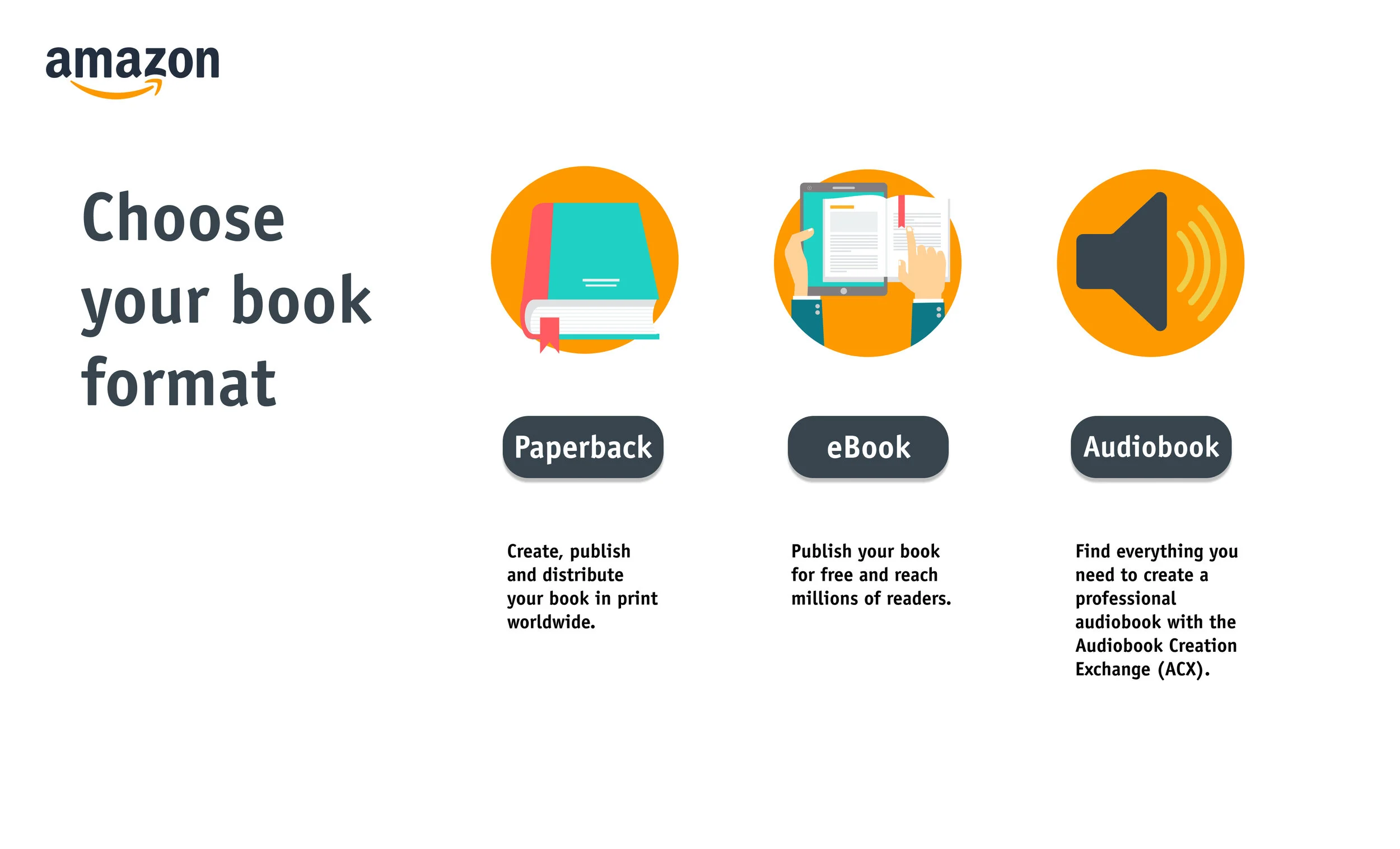Amazon Publisher
A revamp of Amazon’s Self-Publishing Service
A concept to revamp Amazon’s Self Publishing Service —
Challenge
To design a product for self-publishing a book on Amazon, decreasing the entry barrier to self publishing.
Goals
To create a smooth user journey
To motivate the user to continue writing
To provide book cover templates
To create visualizations for sales reports
The User Research
As a service that no one in my group was familiar with, we began by trying to use Amazon’s existing service immediately. We placed ourselves in the shoes of the user to understand the usability of this service.
Determining Existing Issues
Amazon’s current self-publishing service
Amazon directs each type of publication to different services
Within those services, they also have the option to publish the other types, creating an uncertainty on which to choose. e.g. Clicking into “Publish to Print” and the redirected service also has a “Publish to Kindle” option within.
Amazon describes the benefits for each type of publication in a list, which makes it difficult to compare and conclude to the best option for the user.
No incentive for users to publish continue publishing books
Poor book cover templates/generators
Complicated sales reports, with minimal visualizations
Outdated visuals
Brainstorm
Create a clean, simplistic opening page with 3 options of publication.
Create a visualization that displays all the benefits of each type of publication that is easy to read.
Create membership tiers that reward users for publishing more books by providing publication benefits.
Generate cover templates by prompting for the style of cover they’re looking for.
Analyze sale reports and create effective visualizations to display to the user.
Most of our brainstorm was done on whiteboards during the hackathon, and due to time constraint, no photos were taken of it.
The Prototype
Book Format
The initial issue was that the page was cluttered, misdirecting, outdated. Here is an updated simplistic version, with pictures and short descriptions. The additional information that was removed will be on an introductory page before this. The idea is to create more pages to reduce the amount on information on one.
Book Cover Template
To create a more personalized book cover template, I pitch a feature for the user to input what type of styles they are looking for. Here we have different styles where the user many resize each bubble, meaning the weight of style they would like. The combination of weights will be calculated and the perfect book covers will be recommended.
Incentive
A common issue for writers is the lost of motive to finish a book. An idea my group came up with was having membership tiers. Many benefits of publications are additional costs. Here, we incentivize the writers by giving them premium memberships the more they publish, meaning that they have these paid benefits for free, if they are able to publish books at a reasonable pace.
Reports
An important tool for a writer is to understand the statistics of their published work. After the user has published their book, they will be able to view generated visualizations to help them understand important information regarding their book(s). This may help them realize issues in their books, or let them know how well they’re doing.
Conclusion
Our group’s 3 hour escapade ended with this prototype. As a group we gave each other roles, as a designers, managers, and researchers. This provided fluidity in our work, ensuring all aspects of the project were complete. This project reflects the process of design-thinking, under the pressure of time. We took in the prompt, comprehended the issues, brainstormed ideas on how we could fix those issues, and implemented those ideas into a prototype.







